Sotto una luna morta piccola dormivamo senza paura
Fu un generale di vent'anni
Occhi turchini e giacca uguale,
Fu un generale di vent'anni
figlio di un temporale
C'è un dollaro d'argento sul fondo del Sand Creek.
I nostri guerrieri troppo lontani sulla pista del bisonte,
E quella musica distante diventò sempre più forte
Chiusi gli occhi per tre volte,
Mi ritrovai ancora lì
Chiesi a mio nonno: È solo un sogno?
Mio nonno disse sì
A volte i pesci cantano sul fondo del Sand Creek.
Sognai talmente forte che mi uscì il sangue dal naso,
Il lampo in un orecchio e nell'altro il paradiso
Le lacrime più piccole,
Le lacrime più grosse
Quando l'albero della neve
Fiorì di stelle rosse
Ora i bambini dormono sul fondo del Sand Creek.
Quando il sole alzò la testa oltre le spalle della notte
C'eran solo cani e fumo e tende capovolte
Tirai una freccia in cielo
Per farlo respirare,
Tirai una freccia al vento
Per farlo sanguinare
La terza freccia cercala sul fondo del Sand Creek.
Si sono presi i nostri cuori sotto una coperta scura
Sotto una luna morta piccola dormivamo senza paura
Fu un generale di vent'anni
Occhi turchini e giacca uguale,
Fu un generale di vent'anni
Figlio di un temporale
Ora i bambini dormono sul fondo del Sand Creek.
April 1st, 2007
La seguente è una versione "di partenza" di "Fiume Sand Creek" in inglese. Prima o poi cercherò di farne una più o meno "singable". Per ora ho fatto questa.
"One of the most important parts of the Sand Creek Massacre narrative lies in the many connections formed between the people, events, and places of the prairie. Some accounts of the plains often stress the isolation of plains societies and cultural differences between settlers and Plains Indians, ignoring how relationships formed and developed over the years. These connections remain relevant today because of their relevance to Sand Creek Massacre's national impact.
For instance, William Bent, his brother, and business partner Ceran St. Vrain built Fort Bent on the Arkansas River in 1833, drawing people for hundreds of miles and co-mingling Mexican laborers, U.S. Army Soldiers, American frontiersmen, Plains Indians, and Santa Fe traders in one place. William Bent's three "halfbreed" sons all witnessed the Sand Creek Massacre. George Bent in particular lent his knowledge and connections to George Bird Grinnell as he wrote about his experiences, Cheyenne customs, and plains society.
People within the village at Sand Creek responded differently to the Massacre; many, such as Little Bear and his friend George Bent, fought against encroaching whites, demonstrating their resistance to this assault on their way of life. Both would eventually move to the reservation in Oklahoma. Others, such as Mochi (Buffalo Calf Woman), continued to fight white settlers until forced to surrender. Mochi became the only American Indian woman subsequently imprisoned by the U.S. Federal Government at Fort Marion, also known as Castillo De San Marcos.
Some witnesses to the Sand Creek Massacre hailed from storied backgrounds, such as Jim Beckwourth. Beckwourth lived among the Crow, scouted the West, served the federal government on several occasions, and worked as an early African-American pioneer. Colonel Shoup hired Beckwourth to guide and interpret for his forces; when Chivington's men attacked at Sand Creek, Beckwourth expressed his outrage and testified to the murder of John Smith's son Jack, a prisoner in the camp.
Other notable connections came with the passage of time: for instance, Black Kettle served as a notable peace chief for years before Sand Creek. Surviving Sand Creek, he continued to advocate for peace until he was killed at the Battle of Washita four years later by Colonel George Custer and members of the U.S. Army's 7th Cavalry. Custer himself faced the wrath of the Cheyenne, Arapaho, and Sioux eight years later at the Little Bighorn. There, some survivors of the Sand Creek Massacre faced against soldiers of the 7th Cavalry on the battlefield.
Many of the connections formed at Sand Creek remain in the names of Colorado: Teller and Chaffee Counties are the namesake of men of the Third Colorado Cavalry, while Mount Evans bears the name of the Territorial Governor and Downing Street in Denver honors Major Jacob Downing. The legacy of Sand Creek surrounds American society even as sites like the Sand Creek Massacre National Historic Site seek to heal the wounds of the massacre." - National Park Service - Sand Creek Massacre
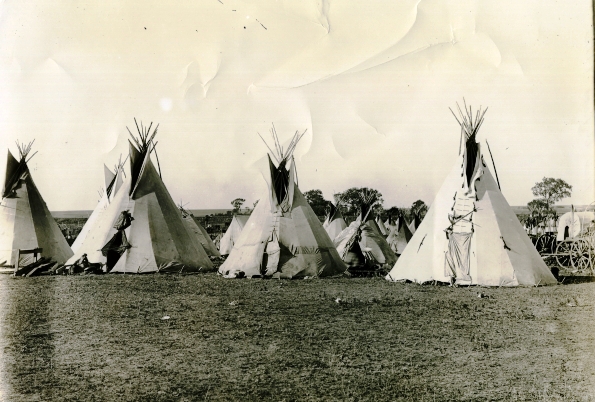
They've taken away our heart under a dark blanket
Under a moon dead in childhood, we slept without fear.
It was a twenty years old general
Wearing a uniform deep blue as his eyes,
It was a twenty years old general,
The son of a storm
There's a silver dollar lying on the bottom of Sand Creek.
Our warriors were too far away on the buffalo track
And that distant music grew louder and louder
I closed my eyes thrice,
I found myself there again
I asked my grandpa, Is that only a dream,
My grandpa told me Yes
Sometimes the fish are singing on the bottom of Sand Creek.
I made so strong dreams that my nose started bleeding,
The lightning in one ear, paradise in the other,
And then the smallest tears
And then the biggest tears
When the snow tree
Gave red starred blossoms
Now the children are sleeping on the bottom of Sand Creek.
When the sun raised its head beyond the night's shoulders
There were only dogs and smoke and overturned tepees
I threw an arrow at the sky
So that it may breathe
I threw an arrow at the wind
So that it may bleed
Look for the third arrow on the bottom of Sand Creek.
They've taken away our heart under a dark blanket
Under a moon dead in childhood, we slept without fear.
It was a twenty years old general
Wearing a uniform deep blue as his eyes,
It was a twenty years old general,
The son of a storm
Now the children are sleeping on the bottom of Sand Creek.
La versione di Shel Shapiro in inglese, da Acoustic Circus (2007).
The English version by Shel Shapiro, from Acoustic Circus (2007).
Questa versione è stata interpretata dal vivo da Patti Smith nel 2007.
Il testo proviene da questa richiesta di trascrizione con alcune correzioni e ancora molti dubbi
He came and rained down upon me, asleep and unafraid
Under a diamond moon and covered sky, it ain't a sense we lay
A minister of God with a killer's hawk, steel blue eyes
That color of his uniform, blown from the thunder in the skies
Through the Sand Creek riverbed a silver dollar lies
Our warriors too far away, ???
A distant music swelling, growing, fattening, soaring, fear
Three times I closed my eyes and all three times a nightmare came
My father's father touched my head and says "Just look again"
You can sometimes hear a fish still sing at the bottom of Sand Creek
I dreamed so loud it seemed so real the blood flowed from my nose
I flashed lightning blinding as the heaven's truth arose
The smallest tear gave way in time to the largest ever shed
Oh, when the snow tree of their ancestors turned from white to red
And the sleeping children dreamed their dreams on the Sand Creek riverbed
When the sun pulls up its head between the shoulders of the night
It just .. smoke and tents to burn in the spectral light
I shot an arrow at the sky to let the arrow breathe
I shot an arrow at the wings to let the arrow feed
The third one if you want it's at the bottom of Sand Creek
They came ... our hearts when we we were sleeping unafraid
Covered by a diamond moon beneath the bright parade (?)
The minister of God with a killer's heart and pale blue eyes
The color of his uniform blown from a thunder in the skies
In the Sand Creek, Riverbed a soul of dark lies
Contributed by DonQuijote82 - 2012/1/28 - 13:33
La versione inglese di Dennis Criteser [2014]
Dal blog Fabrizio De André in English
The album Fabrizio De André is better known as L'indiano based on the cover (a Frederic Remington painting "The Outlier") as well as on the contents of the album. Released in 1981, the album grew out of deep reflections on the similarity between Sardinian culture and 19th century Native American culture. De André and his partner Dori Ghezzi had been kidnapped and held for almost four months in 1979 on the island of Sardinia, where De André lived much of the year. In his words, "an experience of this kind helps one rediscover fundamental values of life. You realize what it means to have warm feet, and what a great conquest it is to not have water dripping on your head while you sleep." De André and co-writer Massimo Bubola were familiar with the Native American story through books like Bury My Heart at Wounded Knee and movies like Little Big Man. De André's reflections on Sardinian and Cheyenne ways began as he sensed a similarity between the values of his captors (whom he refused to denounce at trial, stating they were the prisoners, not he) and those of Cheyenne warriors who risked death to steal horses from enemy tribes. He cited other similarities between the two peoples: economies based on subsistence not productivity, love and respect for nature, lack of interest in money beyond bare necessity, a great love for children, and both cultures being menaced by external forces invading traditional ways of life. - Dennis Criteser
Our hearts were taken under cover of darkness,
under a small dead moon we slept without fear.
He was a general of twenty years,
dark eyes, and same for the jacket.
He was a general of twenty years,
son of a thunder storm.
There’s a silver dollar at the bottom of Sand Creek.
Our warriors too far away on the trail of the bison,
and that distant music became louder and louder.
I closed my eyes three times,
I found myself still there.
I asked my grandpa is it only a dream?
My grandpa said yes.
At times the fish sing at the bottom of Sand Creek.
I dreamed so vividly that blood ran out from my nose,
lightning in one ear and heaven in the other,
the smallest tears,
the biggest tears,
when the snowy tree
blossomed with red stars.
Now the little ones sleep in the bed of Sand Creek.
When the sun raised its head between the night's shoulders,
there were only dogs and smoke and overturned tents.
I fired an arrow into the sky
to make it breathe,
I fired an arrow into the wind
to make it bleed.
Search for the third arrow at the bottom of Sand Creek.
Our hearts were taken under cover of darkness,
under a small dead moon we slept without fear.
He was a general of twenty years,
dark eyes, and same for the jacket.
He was a general of twenty years,
son of a thunder storm.
Now the children sleep at the bottom of Sand Creek.
Contributed by Riccardo Venturi - 2016/2/20 - 07:58
La versione inglese di Scott Jelinek [2021]
Darkness fell around us; our hearts were filled with fear.
The Moon hung in silence; death it drew near.
A twenty-year-old Colonel with eyes as cold as steel.
A twenty-year-old Colonel who came here to kill.
I found a silver dollar on the bottom of Sand Creek
The warriors had gone away to hunt for buffalo.
I heard a strange music being carried o'er the snow.
I blinked my eyes three times to see if it was real.
My grandpa told me, "Son it's a dream and you won't feel."
Sometimes the fish are singing on the bottom of Sand Creek
I dreamt so hard my nose began to bleed.
Lightning flashed in my eyes and heaven came to me.
Some cried a little and some cried a lot
The snow turned to red from the life that had been lost.
Now the children sleep on the bottom of Sand Creek.
The Sun raised its head on the shoulders of the Night.
Only dogs, smoke and carnage, and no one left to fight.
I shot an arrow at the Sky to see if it could breathe.
I shot an arrow at the Wind to see if it would bleed.
I shot a final arrow on the bottom of Sand Creek.
Darkness fell around; our hearts were filled with fear.
The Moon hung in silence; death it drew near.
A twenty-year-old Colonel with eyes as cold as steel.
A twenty-year-old Colonel who came here to kill.
Now the children sleep on the bottom of Sand Creek.
Contributed by Luke Atreides - 2024/12/23 - 23:47
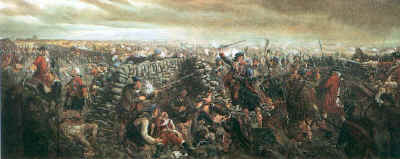
Culloden 1746.
Thay reft our hert awa aneth a mirkie blanket
Aneth a muin deid in its bairntime we sleepit free o fears
It wes a general twinty year auld
Blae in the een jaiket the samen
It wes a general twinty year auld
Son o a blouster
Thare a siller dollar liggin on the bed o Sann Creek.
Our weirmen ower faur awa on the steid o the bison
An thon hyne-awa muisic gat louder, aye louder
Thrice I steikit my een
Yince mair I kent I wes thonder
I speirt o my granda wes ’t jist a draem
An granda said aye
The fishes is singin whiles on the bed o Sann Creek.
Sae strang wes my draems the bluid tuim’d doun frae my neb
Levin-flauchts in the tae lug an paradise in the tither
The peeriest tears
The meiklest tears
Whan the tree o snaw
Bluim’d wi reid starns
The bairnies is sleepin nou on the bed o Sann Creek.
Whan the sun heistit his heid abuin the shouthers o nicht
Thare wes naethin but dugs an reek an whumml’t tents
I cuist a flane at the lift
Tae gar it breathe
I cuist a flane at the wunn
Tae gar it bleed
Seek for the third o the flanes on the bed o Sann Creek.
Thay reft our herts awa aneth a mirkie blanket
Aneth a muin deid in its bairntime we sleepit free o fears
It wes a general twinty year auld
Blae in the een jaiket the samen
It wes a general twinty year auld
Son o a blouster
The bairnies is sleepin nou on the bed o Sann Creek.
Contributed by Derrick MacClure - 2015/2/26 - 16:14
Version française – MASSACRE À SAND CREEK – Marco Valdo M.I. – 2010
Chanson italienne – Fiume Sand Creek – Fabrizio De André – 1981
Le colonel John Chivington et ses 700 cavaliers attaquèrent le camp indien qui comptait 500 personnes, guerriers mais aussi femmes, vieillards et enfants. Au terme des combats, près de 270 indiens furent massacrés, contre 15 tués et 50 blessés pour les soldats américains. La violence du massacre entraîna une remise en question de la politique américaine d'extermination des Amérindiens.
(suite Wikipedia)
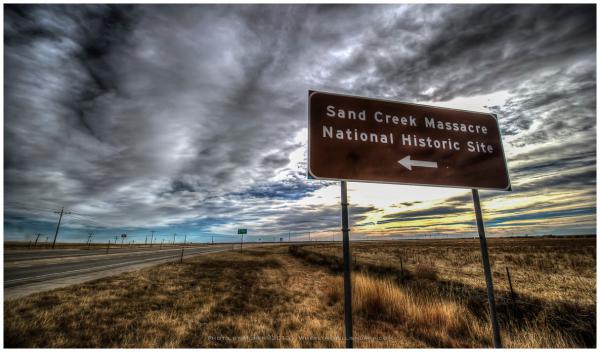
Sand Creek , crique ensablée... Un lieu perdu au fin fond du Colorado, aux temps où les Zétazunis étaient ravagés par une guerre civile entre les envahisseurs blancs... Là-bas, au fin fond du Colorado, au lieu dit Sand Creek, crique ensablée, un groupe d'Indiens Cheyennes avec femmes et enfants avait installé, en accord avec le gouvernement, son campement pacifique. Ils furent attaqués et massacrés par des miliciens blancs … Lesquels miliciens (volontaires...) se livrèrent aux pires atrocités et s'en revinrent en ville arborant les scalps et les organes sexuels des attachés à leurs chapeaux et aux selles de leurs chevaux. Le chef de cette brillante équipée s'en retourna tranquillement exercer sa pacifique profession de pasteur méthodiste. On dit qu'il en fut empêché par ses ouailles qui lui rappelaient à tout moment le nom de « Sand Creek ».Telle est l’histoire du massacre de Sand Creek... Elle est racontée par un des Cheyennes survivants...
On a pris notre cœur sous une couverture noire
Sous une petite lune morte, nous dormions sans peur
C'était un général de vingt ans
Yeux turquoise et tunique bleue
C'était un général de vingt ans
Fils d'un orage
Il y a un dollar d’argent sur le fond du Sand Creek.
Nos guerriers sont trop loin sur la piste du bison
Et cette musique distante devient de plus en plus forte
Je fermai les yeux par trois fois
Et je me retrouvai encore là
Je demandai à grand-père, est-ce un rêve
Mon grand-père répondit oui.
Par moments, les poissons chantent sur le fond du Sand Creek.
Je rêvai tellement forte que ma langue ressortait de mon nez
L'éclair dans une oreille et le paradis dans l'autre
Les larmes les plus petites
Les larmes les plus grosses
Quand l’arbre de la neige
Fleurit d'étoiles rouges.
À présent nos enfants dorment sur le fond du Sand Creek.
Quand le soleil passa la tête entre les épaules de la nuit
Il n'y avait plus que des chiens, de la fumée et des tentes renversées
Je tirai une flèche vers le ciel
Pour le faire respirer
Je tirai une flèche vers le ciel
Pour le faire saigner
La troisième flèche, tu peux la chercher sur le fond du Sand Creek.
On a pris notre cœur sous une couverture noire
Sous une petite lune morte, nous dormions sans peur
C'était un général de vingt ans
Yeux turquoise et tunique bleue
C'était un général de vingt ans
Fils d'un orage
À présent nos enfants dorment sur le fond du Sand Creek.
Contributed by Marco Valdo M.I. - 2010/5/17 - 16:00
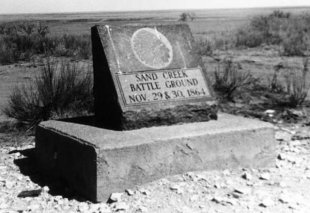
Versione tedesca di Riccardo Venturi
Deutsche Übersetzung von Riccardo Venturi
Sie haben unser Herz unter eine dunkle Decke genommen
Unter einem klein gestorbenen Mond schliefen wir ohne Angst
Es war ein zwanzigjähriger General,
Dunkelblaue Augen und gleichfarbige Jacke
Es war ein zwanzigjähriger General,
Sohn eines Gewitters
Es liegt ein Silberdollar auf dem Grund des Sand Creeks.
Unsere Krieger, zu weit weg, auf der Spur des Bisons
Und jene entfernte Musik wurde immer lauter
Ich schloß meine Augen dreimal
und befand mich wieder dort
Ich fragte meinen Opa, ob es ein Traum war
Mein Großvater sagte ja
Manchmal singen die Fische auf dem Grund des Sand Creeks.
Ich träumte so stark, daß mir das Blut aus der Nase floß
Der Blitz in einem Ohr, im anderen das Paradies
Die kleinsten Tränen,
Die größten Tränen
Als auf dem Schneebaum
rote Sterne blühten
Nun schlafen die Kinder im Bett des Sand Creeks.
Als die Sonne ihren Kopf von den Schultern der Nacht erhob
Waren dort nur Hunde und Rauch und umgestürzte Zelte
Ich schoß einen Pfeil zum Himmel
Um ihn atmen zu lassen,
Ich schoß einen Pfeil in den Wind
Um ihn bluten zu lassen
Den dritten Pfeil sollst du suchen auf dem Grund des Sand Creeks.
Sie haben unser Herz unter eine dunkle Decke genommen
Unter einem klein gestorbenen Mond schliefen wir ohne Angst
Es war ein zwanzigjähriger General,
Dunkelblaue Augen und gleichfarbige Jacke
Es war ein zwanzigjähriger General,
Sohn eines Gewitters
Nun schlafen die Kinder im Bett des Sand Creeks.
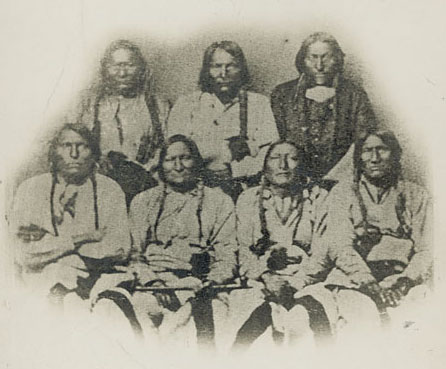
Ulteriore versione tedesca di Paolo Poli, da
faberdeandre.com.
Weitere deutsche Übersetzung von Paolo Poli
aus faberdeandre.com
Sie haben unser Herz unter einer dunklen Decke weggebracht,
unter einem kleinen gestorbenen Mond schliefen wir ohne Angst.
Es war ein zwanzigjähriger General, mit blauen Augen und gleicher Jacke,
Es war ein zwanzigjähriger General, Sohn eines Gewitters.
Ein Silberdollar liegt auf dem Grund des Sand Creeks.
Unsere zu entfernten Krieger folgten den Bisonsfährten
Und die entfernte Musik wurde immer lauter.
Ich machte dreimal meine Augen zu, aber ich war noch da;
Ich fragte meinen Opa, ob es nur ein Traum war: mein Opa sagte "ja".
Manchmal singen die Fische auf dem Grund des Sand Creeks.
Ich träumte so stark, ich hatte Nasenbluten,
den Blitz in einem Ohr, im anderen den Himmel.
Die kleinsten Tränen, dann die Größten,
wenn der Baum des Schnees mit roten Sternen blühte.
Jetzt schlafen die Kinder auf dem Flußbett des Sand Creeks.
Als die Sonne ihren Kopf zwischen den Schultern der Nacht erhob,
waren nur Hunde und Rauch und ungedrehten Zelten da.
Ich schoß einen Pfeil in den Himmel ab, um ihn atmen zu lassen;
Ich schoß einen Pfeil in den Wind ab, um ihn bluten zu lassen.
Such den dritten Pfeil auf dem Grund des Sand Creeks.
Sie haben unsere Herzen unter einer dunklen Decke weggebracht,
unter einem kleinen gestorbenen Mond schliefen wir ohne Angst.
Es war ein zwanzigjähriger General, mit blauen Augen und gleicher Jacke,
Es war ein zwanzigjähriger General, Sohn eines Gewitters.
Jetzt schlafen die Kinder auf dem Grund des Sand Creeks.
Contributed by Riccardo Venturi - 2005/5/13 - 00:23
Man hat unser Herz begraben unter einer dunklen Decke.
Unter einem Monde, tot und klein, schliefen wir ohne Furcht.
Der General war zwanzig,
Die Augen blau wie seine Jacke.
Der General war zwanzig,
Und eines Sturmwinds Sohn.
Da liegt ein Silberdollar im Grunde des Sand Creek.
Weit, zu weit entfernt unsere Krieger, auf des Bisons Fährte,
Und jene ferne Musik, sie wurde laut und immer lauter.
Meine Augen, ich schloss sie dreimal
Und fand mich immer noch da.
Ich fragte meinen Ahn 'Ist das nur ein Traum?'
Mein Ahn, er sagte ja.
Die Fische, sie singen zuweilen im Grunde des Sand Creek.
So heftig mein Traum, dass aus der Nase das Blut mir lief,
Der Blitz in einem Ohr, im anderen das Paradies.
Tränen, ganz kleine Tränen,
Tränen, sehr große Tränen,
Als der schneebedeckte Baum
Von roten Sternen erblühte.
Nun schlafen sie, die Kinder, im Flussbett des Sand Creek.
Als auf den Schultern der Nacht die Sonne das Haupt erhob,
Da waren Hunde nur und Rauch, und umgestürzte Zelte.
Ich schoss einen Pfeil gen Himmel,
Auf dass er atme.
Ich schoss einen Pfeil in den Wind,
Auf dass er blute.
Den dritten Pfeil, den suche im Grunde des Sand Creek.
Man hat unsere Herzen begraben unter einer dunklen Decke.
Unter einem Monde, tot und klein, schliefen wir ohne Furcht.
Der General war zwanzig,
Die Augen blau wie seine Jacke.
Der General war zwanzig,
Und eines Sturmwinds Sohn.
Nun schlafen sie, die Kinder, im Grunde des Sand Creek.
Contributed by Wolfgang Schwiering - 2017/1/16 - 14:03
Versión al castellano de José Antonio (joanloro27@wanadoo.es) desde Via del Campo
Han tomado nuestro corazón bajo una manta oscura,
debajo de una luna muerta pequeña dormíamos sin miedo,
fue un general de veinte años
ojos azules y la chaqueta igual,
fue un general de veinte años
hijo de un temporal,
Hay un dólar de plata en el fondo del Sand Creek.
Nuestros guerreros demasiado lejos sobre la pista del bisonte
y esa música lejana se volvió más fuerte,
cerré los ojos tres veces
me encontré todavía allí,
pregunté a mi abuelo "es solo un sueño?"
mi abuelo dijo "si",
A veces los peces cantan en el fondo del Sand Creek.
Soñé tan fuertemente que me salió la sangre de la nariz,
el relámpago en una oreja y en la otra el paraíso,
las lagrimas más pequeñas
las lagrimas más grandes,
cuando el árbol de la nieve
floreció de estrellas rojas,
Ahora los niños duermen en el fondo del Sand Creek.
Cuando el sol alzó la cabeza entre los hombros de la noche,
Solo había perros y humo y tiendas tumbadas,
tiré una flecha al cielo
para hacerlo respirar,
tiré una flecha al viento
para hacerlo sangrar,
La tercera flecha búscala en el fondo del Sand Creek.
Han tomado el nuestro corazón bajo una manta oscura,
debajo de una luna muerta pequeña dormíamos sin miedo,
fue un general de veinte años
ojos azules y la chaqueta igual,
fue un general de veinte años
hijo de un temporal,
Ahora los niños duermen en el fondo del Sand Creek.
Contributed by Riccardo Venturi - 2005/5/2 - 23:06
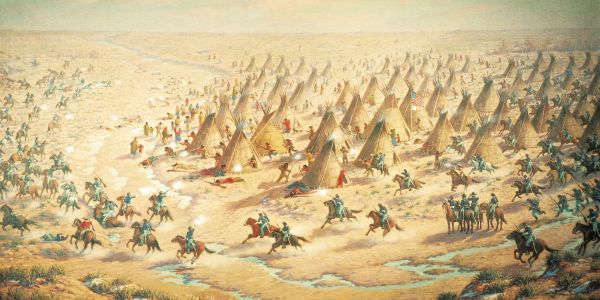
25 de març de 2015
Adattamento in catalano di Riccardo Venturi
25 marzo 2015
Sota una manta fosca ens han pres a tots el cor
Sota una llua morta petita dormíem sense por
Fou un general de vint anys
Amb ulls blaus i jaqueta igual
Fou un general de vint anys
Fill d'un temporal
Hi ha un dòlar de plata al fons del Sand Creek.
Els guerrers massa llunyans sobre la pista del bisó
I aquella música distant es va tornar fragor
Vaig tancar els ulls tres vegades
Em vaig trobar encara allí
Vaig demanar al meu avi, Sols és un somni?
L'avi va respondre sí
Tal vegada els peixos canten al fons del Sand Creek.
El somni fou tan fort que em va sagnar el nas,
El llamp en una orella i a l'altra el paradís
Les llàgrimes més petites
Les llàgrimes més grans
Quan l'arbre de la neu
Va florir amb estrelles roges
Ara els nens dormen al fons del Sand Creek.
Quan el sol va ultrapassar l'espatlla de la nit
No hi havia que gossos i fum i tendes capgirades
Vaig tirar una fletxa al céu
Perquè pugués respirar
Vaig tirar una fletxa al vent
Perquè pugués sagnar
La tercera has de buscar-la al fons del Sand Creek.
Sota una manta fosca ens han pres a tots el cor
Sota una llua morta petita dormíem sense por
Fou un general de vint anys
Amb ulls blaus i jaqueta igual
Fou un general de vint anys
Fill d'un temporal
Ara els nens dormen al fons del Sand Creek.
Da Canti Randagi 2
Si vedano le note al testo
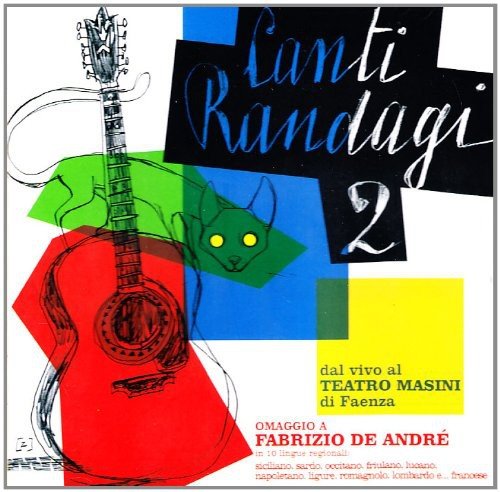
BARABAN (Lombardia)
Il gruppo, fondato nel 1982 è fra i più rappresentativi della scena folk italiana. Apprezzato in Europa e America, Barabàn ha rivisitato la tradizione musicale del nord Italia, appassio-nandosi al valore culturale delle lingue locali, soprattutto lombarda. Sanno dare alle loro interpretazioni energia e attualità con testi anche molto attenti al sociale e alla tradizione popolare di impegno civile. Nel brano riadat-tato sono state inserite, accanto al dialetto. anche intarsi in esperanto, albanese ed arabo.
VINCENZO CAGLIOTI Organetto diatonico
AURELIO CITELLI Voce solista, tastiere
GIULIANO GRASSO Violino, cori
DIEGO RONZIO Darabouka, percussioni, ocarina
PAOLO RONZIO Chitarra acustica, ocarina
MADDALENA SOLER Violino, cori
Gh'an strepà i noster cor
suta una cuerta scura
suta a quel ciel voi ne la luna
durmivum sensa paura
razapaja e malcapàs
occ e giaca cutur di prà
al minister del nient
e quel di tempural
gh e una svansica lusenta *1
nell'Ilet Agrakhat *2
I pescoei del Twenty Two *3
su I senté di pes fata *4
el vent svania luntan
i lus e 'I rabadan
u sarà i oc per tri volt
e seri ancamò lì
U ciamà se l'era un sogn
e I vec al m'à dì sì
de sera i pes canten
in fund all'Agrakhal
Kaj mi song^_is tiom forte
ke elfluis sang el nazo
fulmotondro eri orelo
en alla paradizo *5
loté me te vogela
loté me té mbédha *6
occ ner sensa paura
occ de tèra, occ de mader
al ena assigharu yal abun
li qua al bahr Agrakhal *7
Quand al vent suta La not
l'ha vist la prima lus
gh'era d urna gut de silensi
e strasc sensa vus
u vist una stèla in ciel
fra niul adurmentà
u vist una stela in sogn
che la m'a 'cumpagnà
la tersa stele cercala
in fund all'Agrakhal
An strepà al cor de Ester *8
suta una cuerta scura
cute a quel ciet voi ne la luna
la sugnava sensa paura
azapaja e malcapas
occ e giace cutur di prà
al minister del nient
e quel di tempurat
Adess i fiulin dormen
in fund all'Agrakhal.
[1] Svanzica = antica moneta in uso nel Lombardo-Veneto.
[2] Mar Mediterraneo, in berbero.
[3] Imbarcazione i cui pescatori hanno salvato un barcone di migranti.
[4] Pes fata = pesci fatati, nome dato ai tonni.
[5] In esperanto (scorretto).
[6] In albanese (non standard).
[7] In arabo.
[8] Migrante eritrea che nell'estate 2009, durante un viaggio della disperazione, ha perso il bambino poi gettato in mare ed è morta.
Contributed by DoNQuijote82 - 2011/11/26 - 17:38
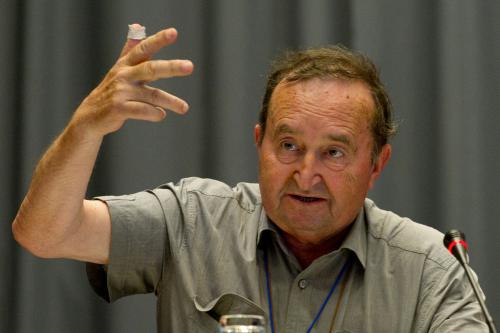
Ili prenis nian koron sub kovrilo tre malhela
sub mortinta eta luno dormis ni en sonĝo bela.
Estis junulo-generalo
turkiskolora uniformo
estis junulo-generalo
ido de norda ŝtormo.
Arĝentas nun dolaro surfunde de Send-krik.
Malproksimis niaj viroj laŭ la spuroj de bizonoj.
La muziko kiu foris ade iĝis pli malfona.
Ree fermis mi okulojn
sed mi estis daŭre tie.
Mi demandis mian avon
"Ĉu ĉi tiu estas revo?"
Jes, foje kantas fiŝoj surfunde de Send-krik.
Kaj mi sonĝis tiom forte ke elfluis sang' el nazo.
Fulmotondro en orelo en alia paradizo
kaj la larmoj pli malgrandaj
kaj la larmoj tre pli grandaj.
Kiam la ardo de la neĝo
floris per helruĝaj steloj.
Nun infanoj dormas surfunde de Send-krik.
Kiam la suno levis la kapon trans la ŝultrojn de la nokto
restis nur hundoj kaj fumo kaj dispelitaj tendoj.
Sagon pafis mi al ĉielo
nur por igi ĝin elspiri
sagon pafis mi al vento
nur por igi ĝin elsangi,
De la tria sago plue al la fundo de Send-krik.
Ili prenis nian koron sub kovrilo tre malhela
sub mortinta eta luno dormis ni en sonĝo bela.
Estis junulo-generalo
turkiskolora uniformo
estis junulo-generalo
ido de norda ŝtormo.
Nun infanoj dormas surfunde de Send-krik.
Contributed by Riccardo Venturi
Magyar nyelvre fordította Adolfo Salomone
Milánóban elek, itt is születtem 1944-ben. Tanár vagyok. Amikor katona voltam (35 évvel ezelott) kezdtem Fabrizio dalait hallgatni. A zeneje es foleg a szövegei remek kifinomultsága mély hatással voltak rám. Többször hallgattam es azóta megvettem minden darabját, igy Fabrizio minden dala megvan nekem. Én, aki imádom a klasszikus zenét, az oltaromba tettem egy másik szenvedélyt, Mozart mellé, Dé André-t is. - Via del Campo
Sötét takaró alatt vitték el szívünk
Holt kis hold alatt aludtunk, nem féltünk
Húsz éves volt a tábornok
Sötétkék a szeme és olyan a kabátja
Húsz éves volt a tábornok
A viharnak fia
A Sand Creek mélyén ezüstdollár van.
Harcosaink messze jártak a bivaly nyomán
S az a távoli zene egyre erősödött
Háromszor húnytam le szememet
Még mindig ott voltam
Nagyapámat kérdeztem, csak álom-e
S nagyapám azt mondta igen
A halak néha dalolnak a Sand Creek mélyén.
Oly nagyon álmodtam, hogy orrom vére eredt el
A villám az egyik fülemben s a másikban a menny
A legkisebb könnycseppek
A legnagyobb könnycseppek
Mikor a havas fa
Vörös csillagokat virágzott
Most a Sand Creek ágyában alusznak a kisfiúk.
Mikor a nap az éj vállai közül felemelte fejét
Ott csak kutyák, füst és felforgatott sátrak voltak
Nyilat lőttem az ég felé
Hogy lélegethez jusson
Nyilat lőttem a szélbe, hogy eleredjen vére
A harmadik nyilat a Sand Creek fenekén keresd.
Sötét takaró alatt vitték el szívünk
Holt kis hold alatt aludtunk, nem féltünk
Húsz éves volt a tábornok
Sötétkék a szeme és olyan a kabátja
Húsz éves volt a tábornok
A viharnak fia
Most a Sand Creek mélyén alusznak a fiúk.
Contributed by Riccardo Venturi - 2007/4/1 - 22:08
Thank you very much for this interesting site.
Ne panivat sydämemme tumman peitteen alle
Pienen, kuolleen kuun alla me nukuimme vailla pelkoa
Se oli kenraali, kahdenkymmenen,
tummansiniset silmät ja samanvärinen takki
Se oli kenraali, kahdenkymmenen,
rajuilman poika
Sand Creekin pohjassa on hopeadollari.
Soturimme, liian kaukana, puhvelien jäljillä
ja sen etäisen musiikin kumu muuttui yhä kovemmaksi
Suljin silmäni kolmesti
ja olin jälleen siellä
Kysyin isoisältä, oliko se unta
ja isoisä sanoi, että oli
Joskus kalat laulavat Sand Creekin pohjassa.
Näin unta niin todellista, että nenästäni valui verta
Salama toisessa korvassa, toisessa paratiisi
Pienimmät kyyneleet
suurimmat kyyneleet
kun lumipuussa
kukkivat punaiset tähdet
Nyt lapset nukkuvat Sand Creekin uomassa.
Kun aurinko nosti päänsä yön hartioilta
oli jäljellä vain koiria ja savua ja maahan
tallattuja telttoja
Ammuin nuolen taivaalle
jotta se voisi hengittää
Ammuin nuolen tuuleen
verta vuotamaan
Kolmatta nuolta sinun pitää etsiä Sand Creekin pohjasta.
Ne panivat sydämemme tumman peitteen alle
Pienen, kuolleen kuun alla me nukuimme vailla pelkoa
Se oli kenraali, kahdenkymmenen,
tummansiniset silmät ja samanvärinen takki
Se oli kenraali, kahdenkymmenen,
rajuilman poika
Nyt lapset nukkuvat Sand Creekin pohjassa.
Contributed by Juha Rämö - 2009/9/28 - 14:31
The translation is provided with a transcription according to the criteria used in this site.
Они завладели нашим сердцем под темным одеялом.
Мы спали без страха под умершей маленькой луной.
Это был генерал 20 лет отроду –
Бирюзовые глаза и такой же мундир.
Это был генерал 20 лет отроду –
Сын грозы.
Есть серебряный доллар на дне реки Санд Крик.
Наши воины слишком далеко по следу бизонов.
И эта отдаленная музыка становилась все сильнее.
Закрыв глаза трижды,
Я все еще был там.
Спросил у моего деда, был ли это сон,
И он ответил – да.
Иногда рыбы поют на дне реки Санд Крик.
Я так крепко видел сон, что у меня пошла носом кровь.
Молния в одно ухо и рай в другом.
Слезы самые маленькие,
Слезы самые крупные,
Когда снежное дерево
Расцвело красными звездами.
Теперь спят дети на ложе реки Санд Крик.
Когда солнце подняло голову меж плечей ночи,
Были кругом только собаки, дым и перевернутые палатки.
Я пустил стрелу в небо,
Чтобы заставить его дышать.
Я пустил стрелу в ветер,
Чтобы пустить ему кровь.
Третью стрелу ищи на дне реки Санд Крик.
Они завладели нашим сердцем под темным одеялом.
Мы спали без страха под умершей маленькой луной.
Это был генерал 20 лет отроду –
Бирюзовые глаза и такой же мундир.
Это был генерал 20 лет отроду –
Сын грозы.
Теперь дети спят на дне реки Санд Крик.
REKA SAND KRIK
Oni zavładeli našim serdcem pod temnym odejałom
My spali bez straxa pod umeršej maleńkoj łunoj,
Ėto był generał 20 let otrodu -
Birjuzovye głaza i takoj že mundir,
Ėto był generał 20 let otrodu -
Syn grozy.
Est' serebrjanyj dołłar na dne reki Sand Krik.
Naši vojny sliškom daleko po sledu bizonov,
I ėta otdalennaja muzyka stanoviłaś vse silnee.
Zakryv głaza triždy,
Ja vse ešće był tam,
Sprosił u moego deda, był li ėto son,
I on otvetił – da.
Inogda ryby pojut na dne reki Sand Krik.
Ja tak krepko videł son, čto u menja pošła nosom krov',
Mołnija v odno uxo i raj v drugom,
Slezy samye maleńkie,
Slezy samye krupnye
Kogda snežnoje derevo
Rascveło krasnymi zvezdami.
Tepeŕ spjat deti na łože reki Sand Krik.
Kogda sołnce podnjało gołovu mež plečej noči,
Byli krugom tolko sobaki, dym i perevernutye pałatki.
Ja pustił strełu v nebo
Čtoby zastavił ego dyšat',
Ja pustił strełu v veter
Čtoby pustit' emu krov'.
Tret'ju strełu išći na dne reki Sand Krik.
Oni zavładeli našim serdcem pod temnym odejałom
My spali bez straxa pod umeršej maleńkoj łunoj,
Ėto był generał 20 let otrodu -
Birjuzovye głaza i takoj že mundir,
Ėto był generał 20 let otrodu -
Syn grozy.
Tepeŕ spjat deti na łože reki Sand Krik.
Contributed by DonQujiote82 - 2010/7/19 - 12:12
Versione polacca di Azalia da Lyrics Translate
Piosenka została napisana w hołdzie rdzennym mieszkańcom Ameryki. Odnosi się do krwawej masakry z 1864r., o której można przeczytać pod poniższym linkiem
Skradli nasze serce pod osłoną ciemności.
Pod wątłym, gasnącym księżycem spaliśmy bez strachu.
On był dwudziestoletnim generałem
o oczach turkusowych jak jego mundur.
On był dwudziestoletnim generałem,
synem nawałnicy.
Srebrny dolar spoczywa na dnie rzeki Sand Creek.
Nasi wojownicy, tropiąc bizony, byli zbyt daleko,
a tamta odległa muzyka rozbrzmiewała coraz głośniej.
Zamykałem oczy trzy razy,
ale wciąż tam byłem.
Spytałem mego dziadka: „Czy to tylko sen?”.
Mój dziadek odpowiedział: „Tak”.
Czasami ryby śpiewają na dnie rzeki Sand Creek.
Śniłem tak intensywnie, że krew poszła nosem;
w jednym uchu trzask iskry, w drugim odgłosy raju,
łzy najdrobniejsze,
łzy najcięższe,
gdy ośnieżone drzewo
zakwitło czerwonymi gwiazdami.
Teraz dzieci śpią w korycie rzeki Sand Creek.
Gdy słońce podniosło głowę sponad ramion nocy,
były już tylko psy, dym i powywracane namioty.
Posłałem strzałę w niebo,
by mogło oddychać;
posłałem strzałę w wiatr,
aby się zalał krwią.
Trzeciej strzały szukaj na dnie rzeki Sand Creek.
Skradli nam nasze serce pod osłoną ciemności.
Pod wątłym, gasnącym księżycem spaliśmy bez strachu.
On był dwudziestoletnim generałem
o oczach turkusowych jak jego mundur.
On był dwudziestoletnim generałem,
synem nawałnicy.
Teraz dzieci śpią na dnie rzeki Sand Creek.
da Lyrics Translate
S’ind’ant furau su coru asut’e una manta scuria
Asut’e una luna morta a pitica dromemus chen’e timoria
Est istétiu unu generali de bint’annus
A ogus asullus coment’e su giponi
Est istétiu unu generali de bint’annus
Fill‘e su bentu maimoni
Inc’est unu dòllaru de prata in su fund’e su Sand Creek
Is gherradoris nostrus trop’atesu, fiant avat‘e su bisonti
E cudda mùsica distanti est diventada sempri prus forti
Emu serrau tres bortas is ogus
Mi seu agatau ancora inguddei
Emu domandau a jaju, est sceti unu sònniu?
E jaju iat nau ca d’ei
A bortas is piscis cantant in su fund’e su Sand Creek
Apu sonniau aici forti chi m’ind’est bessiu sanguni de su nasu
Su lampu in d’una origa, in s’atra su paradisu
Is làgrimas prus piticas
Is làgrimas prus mannas
Candu s’àrburi de sa nì
S’est infroriu de istellas arrubias
Imoi dromint is pipius in sa còdula ‘e Sand Creek
Candu su soli nd’at bogau sa conca de a palas de sa notti
Inci fiant sceti canis e fumu e tendas bortuladas
Apu ghetau una frécia a celu
Po ddu fai arrespirai
Apu ghetau una frécia a su ‘entu
Po ddu fai sangunai
Sa frécia 'e tres ciccadda in su fund’e su Sand Creek
S’ind’ant furau su coru asut’e una manta scuria
Asut’e una luna morta a pitica dromemus chen’e timoria
Est istétiu unu generali de bint’annus
A ogus asullus coment’e su giponi
Est istétiu unu generali de bint’annus
Fill‘e su bentu maimoni
Imoi dromint is pipius in su fund’e su Sand Creek
Fausto Nicastro - 2005/10/4 - 19:58
Riccardo Venturi - 2005/10/5 - 15:02
L'influenza dei Pink Floyd su De André in quel periodo c'era, basti pensare a "Ave Maria" dello stesso album (che qualcuno dice che è molto simile a "Welcome to the Machine", ma anche in questo caso le analogie sono più che altro nello stile) oppure il riarrangiamento della PFM di "Amico Fragile".
Penso però che esistano dei casi molto più eclatanti. "4th time around" di Bob Dylan è copiata da "Norwegian Wood" dei Beatles? Sì, è dichiaratamente una risposta a quella canzone. E ci sono migliaia di casi del genere e anche peggiori, a volte dichiarati, a volte meno.
Ascoltatevi buona parte della discografia dei Modena City Ramblers e poi quella dei Pogues... sopravvoliamo poi su Zucchero...
Si dice che Ringo Starr abbia scritto così poche canzoni per i Beatles, perché ogni volta che arrivava con una canzone nuova gli altri tre gli facevano notare che assomigliava alla canzone di qualcun altro... e lui ammetteva, sì, che era vero, ma non se n'era accorto prima.
Rincorrere sempre il plagio è un esercizio anche divertente ma che lascia un po' il tempo che trova, la musica è sempre stata fatta anche di rielaborazioni, consce od inconsce, di melodie più o meno già sentite.
Lorenzo Masetti - 2005/10/5 - 18:48
Pietro - 2006/10/25 - 18:14
leggendo quello precedentemente scritto, e senza nulla togliere ne a Bubola ne al Grandissimo De Andre mi sembra pretestuoso pensare ad un plagio diciamo che ci sono delle forti influenze nel rif, per dirla tutta Atom Heart Mother e del 1970 e quindi... dubito che i pink floyd abbiano potuto copiare un rif di una canzone scritta nel 1980 o nel 78... anche se le droghe assunte avrebbero comunque potuto dargli una visione della musica futura e quindi copiare un rif di una canzone che nulla a che fare con summer '68...e poi francamente queste sono chiacchiere da bar come dire che Mozart ha copiato a Beethowen... per fortuna sono esistiti entrambi.
Bye
Roberto Pagliaro - 2010/5/16 - 23:52
Che quello di fiume sand creek non fosse un giro originalissimo, si sapeva e in questo senso personalmente trovo lo zampino di Bubola: pur senza togliere nulla alla sua bravura di compositore, che ammiro molto anche oltre la sua opera con De Andrè, molte delle sue canzoni suonano "non originalissime". Per arrivare al livello di "camicie rosse" (stupenda canzone)che è di fatto identica anche come melodia ai vari "Billy" di Bob Dylan. L'ha voluto copiare direttamente? Probabilmente no, semplicemente è un giro così banale (nel senso "neutro" del termine) che è facile che ci siano arrivati entrambi, magari avendo entrambi nella testa un precedente, e a me ignoto, ispiratore comune. Il giro di Fiume Sand Creek è forse un po' più complesso ma non griderei comunque al plagio e al dolo.
qu - 2010/5/23 - 10:36
DonQuijote82 - 2011/9/28 - 15:42
DoNQuijote82 - 2011/11/27 - 14:56
Flavio Poltronieri - 2015/2/26 - 18:59
PAGINA RESTAURATA E AGGIORNATA / THIS PAGE HAS BEEN RESTORED AND UPDATED

1. Se inserisci una traduzione, aggiorna l'ordine delle versioni
2. Aggiungi la nuova traduzione all' "INDICE RAPIDO DELLE VERSIONI DISPONIBILI" nell'introduzione e aggiorna il numero delle traduzioni
3. Verifica sempre l'ortografia corretta dei testi e di ciò che scrivi personalmente
4. Non inserire video o link a materiale non strettamente attinente alla pagina: per questo c'è Facebook! - Grazie
This page has been restored and updated in the days 25 through 27 March, 2015. Please help keep it in due order by observing the following four basic criteria:
1. If you include a new translation, version order should be updated
2. The new translation should be included in the "QUICK INDEX OF VERSIONS AVAILABLE" located in the introduction, and the number of translations should be updated
3. Please always check correct spelling of the lyrics and of what you are writing
4. Please don't include videos or links not strictly referring to the page topic: use Facebook! - Thanks!
CCG/AWS Staff - 2015/3/27 - 16:38
sotto una luna morta piccola dormivamo senza paura
fu un generale di vent'anni
occhi turchini e giacca uguale
fu un aviatore di vent'anni
figlio d'un temporale
c'è un dollaro d'argento tra i vicoli a Jabaliya
I nostri villaggi troppo fragili al cospetto delle bombe
e quella musica distante diventò sempre più forte
chiusi gli occhi per tre volte
mi ritrovai ancora lì
chiesi a mio nonno è solo un sogno
mio nonno disse sì
a volte i pesci cantano nel mare a Gaza
Sognai talmente forte che mi uscì il sangue dal naso
il lampo in un orecchio nell'altro il paradiso
le lacrime più piccole
le lacrime più grosse
quando l'albero della neve
fiorì di stelle rosse
ora i bambini dormono tra le fiamme a Beit Hanoun
Quando il sole alzò la testa tra le spalle della notte
c'erano solo cani e fumo e case capovolte
tirai un sasso in cielo
per farlo respirare
tirai un sasso al vento
per farlo sanguinare
il terzo sasso cercalo nella piana di Jenin
Si son presi il nostro cuore sotto una coperta scura
sotto una luna morta piccola dormivamo senza paura
fu un generale di vent'anni
occhi turchini e giacca uguale
fu un aviatore di vent'anni
figlio d'un temporale
ora i bambini dormono tra le macerie di Rafah".
Contributed by Dq82 - 2017/11/14 - 10:15
Note for non-Italian users: Sorry, though the interface of this website is translated into English, most commentaries and biographies are in Italian and/or in other languages like French, German, Spanish, Russian etc.



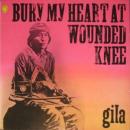


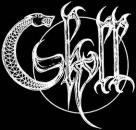
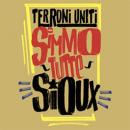

[1981]
Testo e musica di Fabrizio De André e Massimo Bubola
Lyrics and music by Fabrizio De André and Massimo Bubola
Album: "Album dell'Indiano"
Altri interpreti: Mia Martini, Loredana Bertè con i New Trolls, Cristiano De André, Shel Shapiro (in inglese), Pinguini Tattici Nucleari, Fratelli di Soledad, Luciano Ligabue
«I maggiori spunti me li ha dati un libro, Gambe di legno. Memorie di un guerriero Cheyenne.»
[Fabrizio De André in Cantico per i diversi, intervista a cura di Roberto Cappelli, Mucchio Selvaggio, settembre 1992]
INDICE RAPIDO DELLE VERSIONI DISPONIBILI [12 lingue sinora]
QUICK INDEX OF VERSIONS AVAILABLE [12 languages up to now]
Inglese 1 (Riccardo Venturi) - Inglese 2 (Shel Shapiro) - Inglese 3 (Dennis Criteser) - Inglese 4 (Scott Jelinek) - Scozzese (Derrick McClure) - Francese (Marco Valdo M.I.) - Tedesco 1 (Riccardo Venturi) - Tedesco 2 (Paolo Poli) - Tedesco 3 - Spagnolo (José Antonio) - Catalano (Riccardo Venturi) - Lombardo della Bassa Padana (Barabàn) - Esperanto (Renato Corsetti) - Ungherese (Adolfo Salomone) - Finlandese (Juha Rämö) - Russo - Polacco (Azalia) - Sardo (Marco)
English 1 (Riccardo Venturi) - English 2 (Shel Shapiro) - English 3 (Dennis Criteser) - English 4 (Scott Jelinek) - Scots (Derrick McClure) - French (Marco Valdo M.I.) - German 1 (Riccardo Venturi) - German 2 (Paolo Poli) - German 3 - Spanish (José Antonio) - Catalan (Riccardo Venturi) – Po Lowland Lombard (Barabàn) - Esperanto (Renato Corsetti) - Hungarian (Adolfo Salomone) - Finnish (Juha Rämö) - Russian Polish (Azalia) - Sardinian (Marco)
Nell'estate del 1864 il governo ordinò che tutte le tribù si radunassero in uno stesso luogo, presso un forte dell'esercito, Fort Lyon, nel Colorado. Gli Indiani non ubbidirono. Perciò il colonnello Chivington organizzò il terzo Reggimento dei volontari del Colorado, uomini della peggior specie reclutati per cento giorni soltanto, col compito di massacrare quanti più Indiani possibile, rifacendosi ad un proclama del 1854 del governatore di quello Stato, Evans, che esortava la popolazione a cacciare ed eliminare il numero maggiore di Nativi.
(leggi la storia del massacro di Sand Creek)
The Sand Creek massacre (also known as the Chivington massacre, the Battle of Sand Creek or the massacre of Cheyenne Indians) was an atrocity in the American Indian Wars that occurred on November 29, 1864, when a 700-man force of Colorado Territory militia attacked and destroyed a peaceful village of Cheyenne and Arapaho inhabited in southeastern Colorado Territory,[3] killing and mutilating an estimated 70–163 Indians, about two-thirds of whom were women and children. The location has been designated the Sand Creek Massacre National Historic Site and is administered by the National Park Service.
(Read the story of the Sand Creek massacre)
The Sand Creek massacre in a drawing by Howling Wolf, a Cheyenne artist and eyewitness of the events.